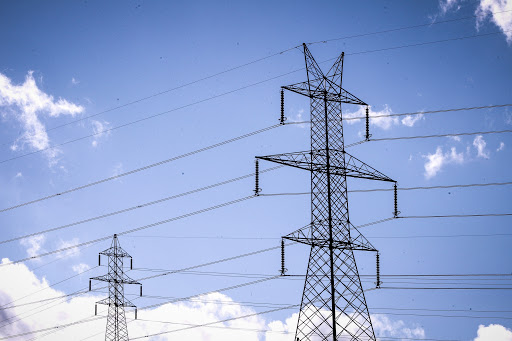
Foreign and domestic energy groups are having second thoughts regarding investment plans for the construction of gas-fired power plants.
The economic uncertainty caused by the war in Ukraine, the apparent rise in lending rates, as well as government decisions to tax electricity generators and the “cap” on the wholesale electricity market are the reasons why investors are considering postponing plans for new CCGTs.
To invest, or not to invest
Indicative is that Hellenic Petroleum CEO Andreas Siamisis announced that in the coming weeks the shareholders (ELPE and Edison) will decide whether to proceed immediately with the construction of the 826 MW Elpedison CCGT plant in Thessaloniki or whether the plan will be postponed.
Shareholders’ concerns the regarding the funding and the possible effects that such investments may have on group profitability were scotched by the Deputy CEO of Motor Oi, during the last teleconference he had with analysts, concerning the funding for the construction with GEK TERNA of the new 877 MW power generation unit in Komotini, for which, as he noted, the two partners have allocated only 50 million euros each and the remaining funds will come from borrowing.
PPC has postponed the decision for its intention to convert “Ptolemaida V” in 2025 from lignite to a natural gas unit until after the summer, because of the need to ensure energy sufficiency by exploiting lignite deposits.
Damco Energy of the Kopelouzos group is also in the phase of making an investment decision regarding the 840 MW CCGT in Alexandroupolis.
The messages
Sources of a foreign investor involved in one of the above-mentioned investment plans, noted to OT, that “there are many negative factors that lead us to a more thorough evaluation of our plans for the new power plants. “The effects of the war in Ukraine on the economic environment are significant and unpredictable in terms of their development,” he said. “We are already seeing high inflation and its impact on borrowing costs, while at the same time the cost of raw materials and equipment is particularly high “.
On the negative side, he weighed the attitude of the Greek government: “We see a shift towards state-ism. We have the case of the taxation of the profits of the electricity companies but also the plans of imposing a ceiling on the revenues of the electricity generators. Such decisions are anything but encouraging for going ahead with investments”, the same sources, speaking to OT, concluded.
However, by the end of July, the groups that plan the aforementioned investments totaling about 1 billion, will have been decided upon.
Latest News

Airbnb Greece – Initial CoS Ruling Deems Tax Circular Unlawful
The case reached the Council of State following annulment applications filed by the Panhellenic Federation of Property Owners (POMIDA)

Mitsotakis Unveils €1 Billion Plan for Housing, Pensioners, Public investments
Greek Prime Minister Kyriakos Mitsotakis has announced a new set of economic support measures, worth 1 billion euros, aiming to provide financial relief to citizens.

Alter Ego Ventures Invests in Pioneering Gaming Company ‘Couch Heroes’
Alter Ego Ventures' participation in the share capital of Couch Heroes marks yet another investment by the Alter Ego Media Group in innovative companies with a focus on technology.

Corruption Still Plagues Greece’s Driving Tests
While traffic accidents continue to claim lives on Greek roads daily, irregularities and under-the-table dealings in the training and testing of new drivers remain disturbingly widespread

Pope Francis Died of Stroke and Heart Failure Vatican Confirms
As news of the official cause of death spread, tributes poured in from across the globe. The 1.4 billion-member Catholic Church is united in grief, remembering a pope who championed inclusion, justice, and compassion

Increase in Both Museum Visits, Revenues for 2024
As expected, the Acropolis was the top archeological site in the country, followed by Sounion, Mycenae, the ancient theater of Epidaurus, and Vergina in northern Greece

Where Greece’s Tourists Come From: A Look at 2025’s Top Visitor Markets
The United Kingdom continues to hold the top spot as the largest source of incoming tourism, with 5.6 million seats booked for Greece this summer — up 2.2% from last year. This accounts for 20% of all international air traffic to Greece

Pope Francis: A Pontiff Who Reshaped the Papacy and Sparked a Global Conversation
His first words from the balcony of St. Peter’s Basilica—“Brothers and sisters, good evening”—set the tone for a pontificate that would challenge norms, favor mercy over dogma, and bring the papacy closer to the people.

When Blue Skies was Unmasked as ND’s Political ‘Slush Fund’
The fact that so many top New Democracy (ND) party cadres were paid by the firm Blue Skies, owned by Thomas Varvitsiotis and Yiannis Olympios, without ever citing this publicly, raises very serious moral issues, regardless of the legality

Greek Women’s Water Polo Team Top in the World after 13-9 Win Over Hungary
The Greek team had previously defeated another tournament favorite, the Netherlands, to reach the final.











![Πλημμύρες: Σημειώθηκαν σε επίπεδα ρεκόρ στην Ευρώπη το 2024 [γράφημα]](https://www.ot.gr/wp-content/uploads/2025/04/FLOOD_HUNGRY-90x90.jpg)




![Ξενοδοχεία: Μεγάλο το ενδιαφέρον για επενδύσεις στην Ελλάδα – Η θέση της Αθήνας [γραφήματα]](https://www.ot.gr/wp-content/uploads/2025/03/Athens-hotels-90x90.jpg)
























 Αριθμός Πιστοποίησης
Αριθμός Πιστοποίησης